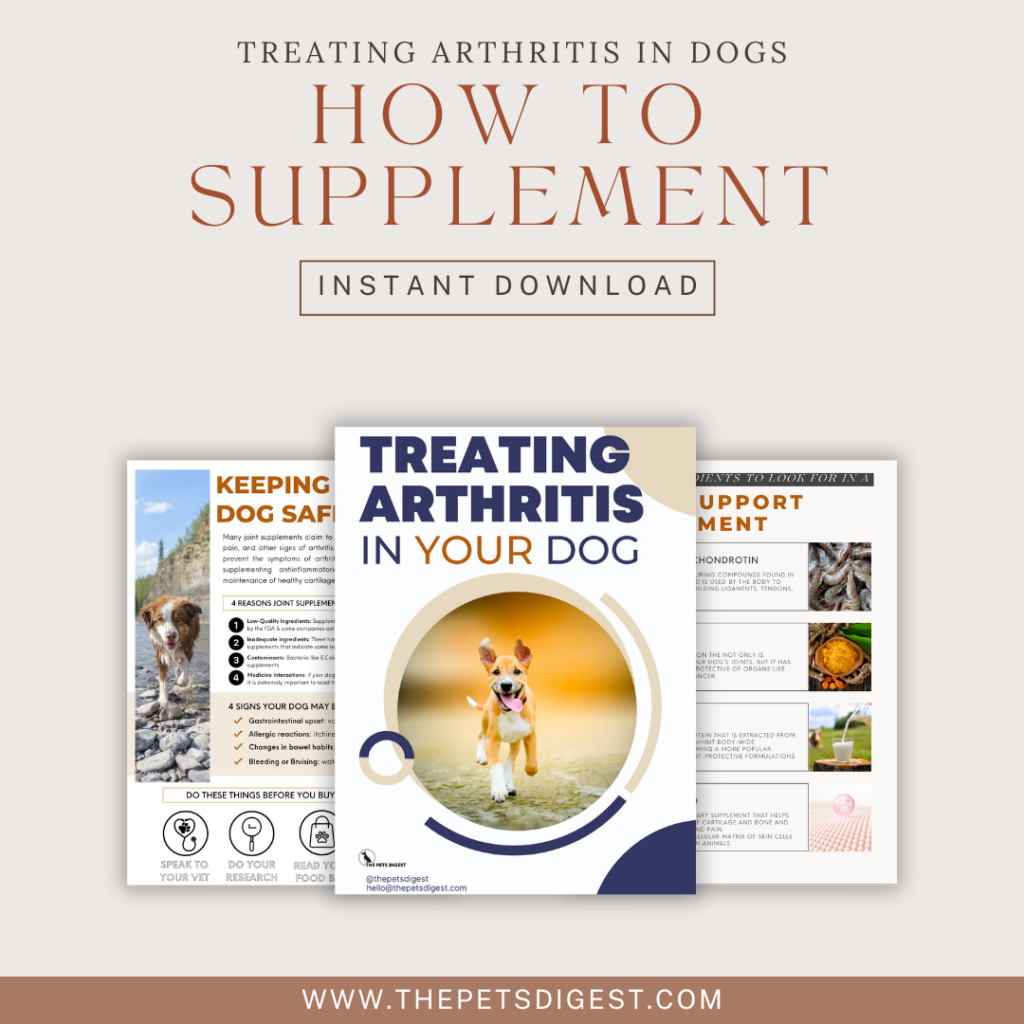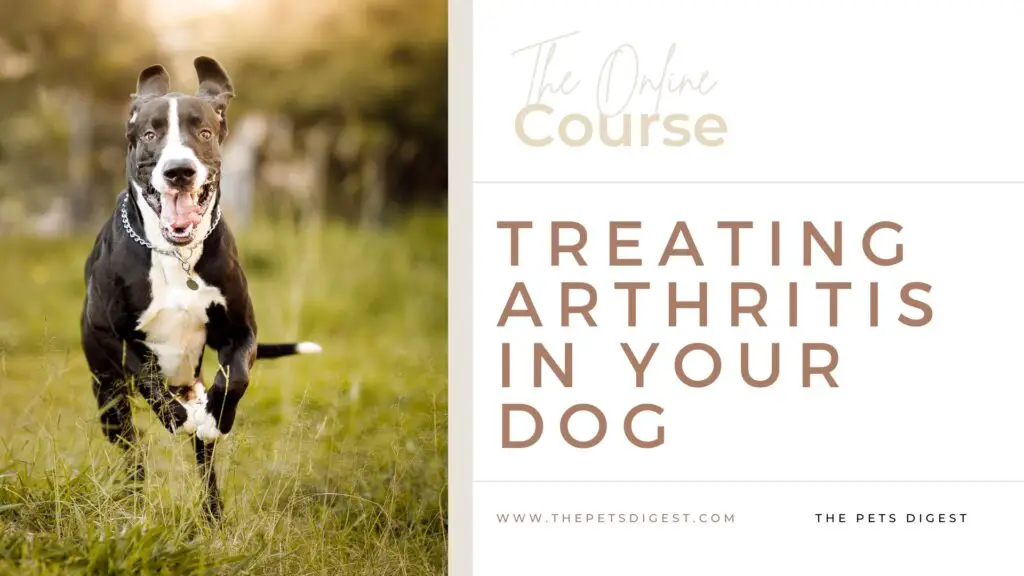In human medicine, the gut is known as the ‘second brain’ so it is no wonder that it has tremendous effects on many pathophysiologies throughout the entire body, this also rings true for dogs.
Recent research in both human and veterinary medicine shows that bacteria found in the microbiome may be useful for predicting the development, detection, and treatment of arthritis.
Scientists have even found evidence of gut microbiome in human cartilage, indicating that microbiota could enhance the healing of cartilage.
The microbiome is composed of several microbes including bacteria, viruses, protozoa, and fungi. Much of the research discussed focuses on the types of bacteria found in the gut. To read more about your dog’s microbiome, read our article about four things you can do to keep it happy and healthy.
Join our email list to stay up to date on the latest in dog gut health
The Microbiome Arthritis Connection
Similar to research in human medicine, one study found that the number of specific bacteria found in the stool of dogs with chronic arthritis was either higher or lower when compared to healthy dogs.
The number of bacteria from the genus Megamonas was higher in dogs with chronic arthritis as opposed to the abundance of bacteria from the families Porphyromonadaceae, Paraprevotellaceae, and Mogibacteriaceae which was lower.
Researchers are considering this a major detection as it could mean one of two things:
1. The presence or lack of the bacteria could predispose dogs to acquiring arthritis down the line.
There may be bacteria found in the gut that can trigger rheumatoid arthritis in dogs already at risk for the disease. Keep in mind that most arthritis seen in dogs is due to wear and tear and not rheumatoid arthritis.
To read about the different types of arthritis in dogs and how food can help read our article here.
2. The presence of the bacteria that were seen in higher numbers in healthy dogs (Porphyromonadaceae, Paraprevotellaceae, and Mogibacteriaceae) could mean they are protective against arthritis.
If this is true, it may change the face of probiotics on the market as more manufacturers may want to include bacteria from these families of bacteria.
To read more about how probiotics may help your dog’s arthritis in-depth, read our latest article here.
What can you do to help your dog?

As a dog owner, you’re probably wondering how you can use the information from this study to help your own fur baby in either the prevention or treatment of arthritis.
1. Monitor Their Fat Intake
Studies have shown that high-fat diets tend to lead to negative gut microbiota disturbances.
To ensure your dog’s microbiome remains healthy feed them a high-quality diet without excess fat. This means limiting table scraps, especially those that include high-fat items like chicken skin or ham.
Also, incorporate exercise as this can of course help decrease any weight gain and as a result any added pressure on the joints.

2. Supplement With Probiotics
The same study noted that the blood plasma C-reactive protein (CRP) was higher in dogs that suffered from arthritis, which is a biomarker of inflammation.
Arthritis literally means inflammation of the joints.
There are some beneficial bacteria that have been shown to reduce inflammation, specifically lactobacillus spp and bifidobacteria which are commonly seen in many dog probiotics. For our pick of the top probiotics for dogs read our article here.
3. Include Anti-inflammatories
In addition to giving your dog probiotics consider adding anti-inflammatories to their regimen. These can be formulations from your vet or those found in whole-natural foods.
Chronic low-grade inflammation caused by disturbances of the gut microbiota could affect the joints (and other parts of the body) negatively by releasing a constant stream of proinflammatory molecules into the body.
You can also look into feeding your dog anti-inflammatory supplements and foods that are safe for dogs such as blueberries, turmeric, or homemade treats made with chia seeds or other ingredients like these.
4. Consider FMT as a Treatment
FMT or Fecal microbiota translation is just what it sounds like, introducing or transplanting feces from a dog with a healthy microbiome into one that has a disrupted microbiota.
While FMT has been around for a while in human medicine it is just starting to be researched for the successful improvement of arthritis (source).
There are actually FMT capsules that are available for dogs on shelves now, of course, speak with your vet prior to administering any new medication. To read our article about FMT click here.
5. Add Vitamins
Speak with your vet about including vitamins in your dog’s diet.
It would also be beneficial to have your dog’s vitamin levels checked prior to starting them on any supplements so you can know if they are helping.
In the study discussed, the dogs that suffered from chronic arthritis had low vitamin B12 and folate levels. Vitamin B12 is synthesized and used by bacteria in the gut.
6. Treat Additional Underlying Diseases
Diseases like pancreatitis or EPI can cause decreased levels of vitamin B12 and folate, also inflammatory diseases like Lyme disease may increase inflammation in the body and therefore worsen arthritis.
If you notice possible symptoms of other diseases have your dog checked and treated appropriately by your veterinarian.
Conclusion
In conclusion, the direction that science is taking in regard to the microbiome in dogs and arthritis is an exciting new frontier. Not only are we learning that the gut microbiome may be able to assist us in detecting arthritis before it starts in dogs but also that it may be protective depending on how we feed our dogs.

More articles about arthritis in dogs
Sources
- https://www.ncbi.nlm.nih.gov/pmc/articles/PMC7558702/
- Arthritis in dogs and microbiome: https://www.mdpi.com/2306-7381/7/3/92/htm
- FMT in dogs: https://www.ncbi.nlm.nih.gov/pmc/articles/PMC8099633/

























































































































